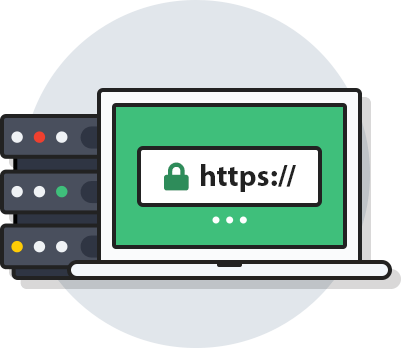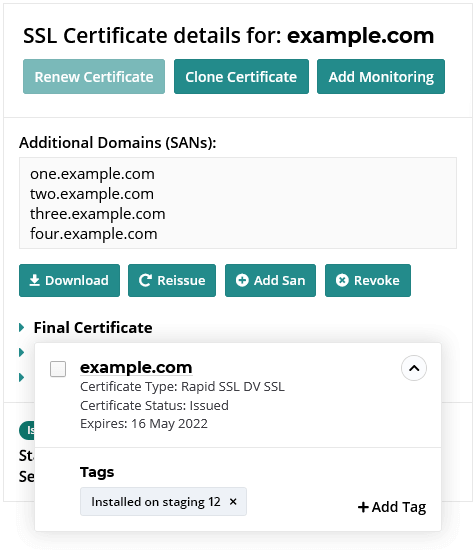SSL Certificates perform two core functions for websites and their visitors - encryption and identity validation - and both are essential to gaining trust and, ultimately, conversions.
Secure Socket Layer (SSL) is the technology security protocol for data encryption and authentication. Transport Layer Security (TLS) is currently the dominant protocol that has replaced SSL and most websites today technically use a TLS certificate (although the terms TLS certificate and SSL certificates are interchangeably used). A TLS / SSL Certificate employs this technology to carry out two core functions:
- It authenticates the identity of your website to visiting browsers, validating your domain or organization for website visitors
- It encrypts the information visitors send to, or receive from, your website
When a TLS/SSL certificate is installed on a website, a secure link is created between the server and a visitor’s web browser - indicated by the HTTPS prefix and the lock icon in the browser bar - to ensure that all data passed between the server and browser stays private. This keeps all the information exchanged between you and your website visitors safe from data thieves.
The other major function of an SSL certificate is identity authentication. Website visitors today increasingly want to know who they are connecting to online — and if they’re legitimate. SSL Certification Authorities use a variety of authentication methods, depending on whether you choose DV, OV or EV SSL, to verify your organization’s information to visitors can have confidence in your online identity.





